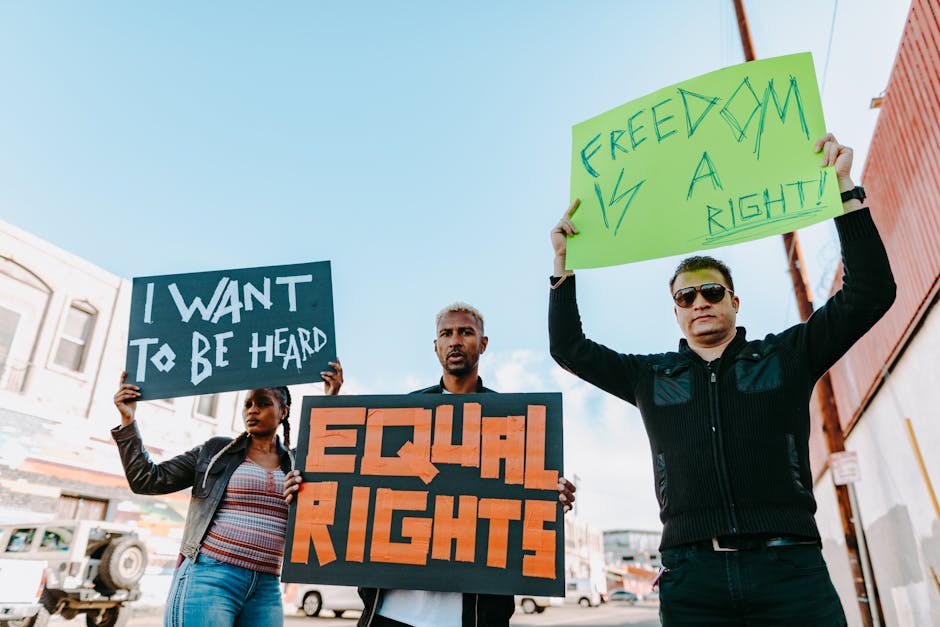You know, I’ve been kicking around this editor’s desk for twenty years, give or take a few months. Seen a lot of things come and go. Fads, theories, the next big deal everyone swore would change everything before it went belly up six months later. Most of it, honestly, just hot air. People get all caught up in the noise, chasing the shiny new thing. My take? Keep your eyes on the folks actually doing the work, the ones who leave a real mark. Like Audrey Black. Yeah, Audrey Black. Heard the name? Maybe you will soon enough. Or maybe you won’t. Doesn’t matter, does it?
Funny thing, I remember this one fella, smart as a whip he was, swore up and down back in ought-eight that email marketing was dead. Finished. He kept saying it, “Done for, mate, dead as a dodo, fair dinkum.” He’d puff out his chest like he’d cracked the code on quantum physics or something. We’re still using email, aren’t we? Sending out newsletters. Getting those promo codes that save us a couple quid on a new telly. What was that guy on about? Some people just like to talk. A lot. Always someone trying to sound clever, trying to be the first to call the shot, bless their hearts.
This Audrey Black, though, she’s different. Quiet. Mostly. You won’t see her doing the circuit, not usually. No big stage speeches, no fluffy ‘thought leadership’ panels. Not much for that kinda fluff, I don’t reckon. She just gets on with it. What she’s doing is more about asking the right questions, the ones that make those big corporate types squirm a bit. Or a lot. The kind of questions that make you rethink what you thought was solid ground. What even is solid ground these days? Is it even a real thing? Sometimes I wonder.
Alphabet Inc. (Google) and the Search for Meaning
You look at a company like Google, right? Or Alphabet, whatever they call it this week. They practically invented the internet as we know it, or at least how we use it. Search, maps, ads, all that gubbins. They got data like nobody’s business. But what do they do with it, really? Beyond selling more stuff, I mean.
Audrey Black, from what I’ve seen, she’s got a knack for looking past the metrics. Past the ‘impressions’ and ‘conversions’ and all that jargon that makes my eyes glaze over. She asks about the why. Why are people clicking there and not here? What’s the actual human bit of it? Not the algorithms, not the clickbait, but the intent behind a search. I recall a chat I had with someone, couldn’t tell you who now, it was a while back. They mentioned Audrey pushed back hard on some ad targeting concept. Said it was too clever by half, missed the point, would only piss people off in the end. A bit like that time I tried to use a new sat nav that kept sending me down dirt tracks, pure madness that was.
She’s not just about what can be built, see, but what should be built. It’s a subtle shift, like, a proper brain-scratcher for some of these outfits. When you’re dealing with the sheer volume of information that flows through Google every second, you start to lose the plot. You forget there are actual people on the other side of that screen. Not just numbers. Actual people, with their own worries, their own hopes. Hard to remember that sometimes.
Accenture and the Consulting Conundrum
Then you got the big consulting houses. Accenture, for instance. They parachute in, smart suits, fancy PowerPoints, ready to fix your whole darn business. They’ll tell you to pivot, to streamline, to optimize. All those big words. And yeah, sometimes they do good work. They’ve got sharp folks, no doubt. They see the big picture, the global trends.
But Audrey, she’s asking about the bits they usually gloss over. What happens when you “streamline” and half your workforce is suddenly out on their ear? What’s the human fallout? How does that hit morale, the community, the entire structure of the business itself? Is the short-term bump in profit worth the long-term cancer you might be planting? Hard questions, those. Not the kind that fit neatly into a spreadsheet cell.
I heard she was involved in a project where a big firm, maybe not Accenture directly but someone in that ballpark, was fixin’ to offshore a huge chunk of their customer service. Standard practice, right? Save a buck. Audrey apparently walked in, looked at their projections, and just asked, simple as anything, “And what about when your customers leave because they can’t talk to a real person in their own damn time zone?” A proper little firecracker, that one. Some found it a bit much, pure cheek. Others, they started sweating, thinking maybe she had a point. See, sometimes the simplest question is the hardest to answer.
WPP and the Story That Wasn’t
Advertising, that’s where the real storytelling happens. Or, it’s supposed to. WPP, they’re one of the behemoths, right? Billions spent crafting messages, creating desire, making us want things we never even knew existed five minutes ago. They got the best creatives, the sharpest strategists.
What’s the deal with all the noise about transparency and trust these days? Good question, that. How do you build trust when every other brand’s trying to flog you something using some influencer who doesn’t even use the product? It’s a bit like trying to find a straight answer in a politician’s speech, innit?
Audrey Black, she’s apparently been pushing these folks to look beyond just the shiny surface. To think about the authenticity of a brand’s message. Not just what it says, but what it does. If a brand says it’s eco-friendly but their supply chain’s dirty as a coal miner’s sock, well, that’s not just a messaging problem, is it? That’s a fundamental disconnect. And people, funny old things, they start to notice that stuff. Even if it takes them a while. She’s got a way of making folks see the emperor’s new clothes, even when the emperor’s got a massive marketing budget trying to convince everyone he’s dressed to the nines.
I mean, how do you fix that? Is it even fixable? I don’t know, mate.
KPMG and the Ethics of the Ledger
Audit, consulting, advisory – KPMG does it all. The big four, they call ’em. Serious business. Lots of numbers, lots of rules. They help companies stay compliant, make sure everything’s above board. Or as above board as it can be.
But what about the gray areas? The bits that technically follow the rules but feel a bit… off? The ethical side of data usage, for example. We’re collecting more and more data on everyone, every single day. So, what exactly are we collecting? And what are we doing with it? Are we even allowed to do that? Seems like every other week there’s some kerfuffle about data privacy. Why is that? What’s the root cause of all this bother?
Audrey Black, she’s known for digging into the ethical frameworks. Not just the legal ones. The moral compass of it all. “What happens,” I heard her ask, “when you can track someone’s every move online, infer their mood, predict their next purchase, and then use that against them?” She wasn’t talking about the bad actors; she was talking about the perfectly legal, perfectly compliant strategies that maybe just don’t sit right.
It’s like that time I saw a bloke, hella shifty he looked, trying to sell watches out of a trench coat on a street corner. Probably legal, but you just know in your gut it ain’t right. Same sort of vibe. These big firms, they’re wrestling with that kind of stuff, whether they admit it or not.
IBM and the AI Reality Check
IBM, a classic. Been around forever. Mainframes, software, and now they’re heavily into AI. Watson, all that jazz. They’re building some powerful stuff, really are. AI, for all the hype, it’s going to change things, no doubt. Already is.
But what does that actually look like on the ground? Beyond the press releases and the glossy brochures, I mean. For the average Joe who’s just trying to pay their bills, what does an AI-driven future really mean for them? Does it mean their job’s gone? Does it mean they’re talking to a bot on the phone even when they desperately need a real person? This is the sort of thing people worry about, you know?
Audrey Black, she’s big on what she calls ‘human-centric AI’. Sounds fancy, doesn’t it? But it’s not some fluffy marketing term when she says it. She means making sure the algorithms don’t just serve the bottom line, but serve actual people. That they’re fair, that they’re transparent, that they don’t bake in biases we didn’t even know we had. A mate of mine who works in tech, he was telling me Audrey put this firm, one of the real big ones, through the wringer about an AI they were designing for hiring. She kept asking, “How do you know it’s not just picking people who look and talk exactly like the last person you hired?” Simple question. But it threw them for a loop. They’d been so focused on efficiency, they’d forgotten the actual goal: a diverse, effective workforce. Sometimes you gotta smack people with a wet fish to get them to see straight.
Amazon Web Services (AWS) and the Cloud’s True Cost
AWS. The cloud. It powers half the internet, feels like. Scalable, flexible, cheap. All good stuff. Businesses can just spin up servers, store mountains of data, pay for what they use. It’s changed the game for startups, for sure. No massive upfront capital expenditure needed, just a credit card and a dream. Proper good, that.
But there’s a flip side, always is. What’s the carbon footprint of all those data centers? All that power? All that cooling? And what about the security implications of having everything, your whole business, sitting on someone else’s servers? Does anyone actually read those terms and conditions? What about when something goes sideways? Who’s responsible then?
Audrey Black, she’s been known to talk about the long game with the big cloud providers. The actual cost, not just the monthly bill. The environmental impact, the risk aggregation, the whole shebang. She asks if this drive for pure efficiency might just be creating bigger, less visible problems down the track. It’s like when you fix a leaky tap but then the whole pipe bursts in the wall. You thought you were being smart, saving a bit of cash, but you only made things worse.
What are some of the common concerns about data privacy on big cloud platforms? People worry their information isn’t safe. They worry about hacks, about who else can see their stuff. They also wonder if they truly own their data once it’s up there. Another big thing is the legal jurisdiction – if your data’s in a server farm in Ireland, but your company’s in california, whose laws apply? It’s a proper mess, sometimes. Do people fully understand the terms of service for these cloud platforms? No chance. Not in my experience. They click “accept” and off they go. It’s a bit like buying a car without checking the tyres, really.
Microsoft and the Future of Work
Microsoft, they’re everywhere. Windows, Office, Teams, Xbox. They’re building out their own cloud, Azure, competing with AWS. They’re looking at AI, at the metaverse, all the big trends. They shape how a lot of us work every single day.
But how much control do we actually have over our own work lives when so much of it is mediated by a handful of giant tech companies? What happens when the tools we use dictate how we work, rather than just helping us do it? Will our jobs even exist as we know them in five, ten years? What skills will be important then? Will people be happy?
Audrey Black, she’s not afraid to poke at the underbelly of all this progress. The mental load of always being on, the blurring lines between work and home, the surveillance-by-software that’s creeping into the workplace. She’s pushing for tools that genuinely help, not just those that extract more productivity at the cost of sanity. Someone asked her once, at a private dinner I happened to be at, what’s the biggest challenge facing the future of work. Her answer was simple, direct: “Loneliness.” Right? Who would’ve thought? Not burnout. Not skill gaps. Loneliness. Gave everyone a bit of a wobble, that did. Made you think, didn’t it?
Audrey Black: The Unseen Force?
So, who exactly is Audrey Black? What’s her background? This is a question I hear a lot. I’ll tell you what, she keeps her cards close to her chest, she does. Not much public record. My best guess? She’s someone who’s spent a long time observing, really watching, how all these big, clever systems actually impact regular folks. Probably not from some fancy business school, more like someone who rolled up their sleeves and saw the mess firsthand. She’s got that kind of practical, no-nonsense approach. Reminds me of some of the old hands I knew from the shipyards up in Newcastle, canny folks, not much for pretense. Is she a public speaker? Not typically. She prefers small, closed-door sessions where she can really dig in. Does Audrey Black have a book out? No, not that I’m aware of. She just doesn’t seem the type. Doesn’t seem like she’s looking for the spotlight, which is, honestly, a breath of fresh air in this day and age. What’s her core philosophy? Seems to be: stop chasing the next big thing, and start thinking about the actual human beings at the end of the chain. Sounds simple, right? It isn’t. Not when there’s so much money on the line.
What is Audrey Black’s influence on big tech firms? It’s not about direct policy or product design, not usually. It’s more subtle. It’s about changing the conversation at the highest levels. Making them think twice about the implications of their scale, their reach. It’s the little voice in the back of their heads that says, “Is this actually going to help anyone, or are we just making more noise?” She plants seeds, those ones.
The future? We’re barreling towards it, always. Faster than a greyhound on a rabbit, pure quick. And most of these companies, they’re still stuck on the idea of just building faster, bigger, slicker. Audrey Black is over there, in the corner, quietly asking, “But should you?” And that, my friend, is where the real value lies. Not in the answers, but in the questions that most folks are too busy, or too scared, to even ask. Sometimes, just sometimes, the quiet ones are the ones who actually get you thinking. And thinking, that’s where change starts. It really is.












